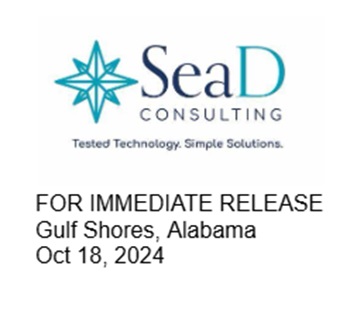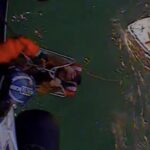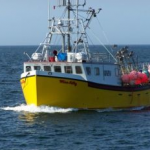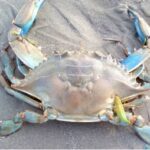National Shrimp Festival Found Selling Farmed Imported Shrimp Instead of ‘Gulf’ Wild-Caught
 The 51st Annual National Shrimp Festival in Gulf Shores, Alabama, website claimed to serve “fresh seafood from the Gulf of Mexico.” However, genetic testing conducted by SEAD Consulting on October 12, 2024, revealed a different story. Out of five shrimp dishes sampled at the festival, only one contained authentic Gulf wild-caught shrimp, provided by Rouses grocery store. The rest were imported, farm-raised shrimp.
The 51st Annual National Shrimp Festival in Gulf Shores, Alabama, website claimed to serve “fresh seafood from the Gulf of Mexico.” However, genetic testing conducted by SEAD Consulting on October 12, 2024, revealed a different story. Out of five shrimp dishes sampled at the festival, only one contained authentic Gulf wild-caught shrimp, provided by Rouses grocery store. The rest were imported, farm-raised shrimp.
Gulf Shores, a festival that draws between 200,000 and 300,000 visitors annually and generates a $47 million economic impact, now faces backlash for false advertising that misleads consumers and undermines local fishermen.
This revelation follows a similar incident at the Louisiana Shrimp & Petroleum Festival in Morgan City earlier this year, where fraudulent shrimp sourcing was first exposed. That finding caused officials in the state of Louisiana to react quickly, calling for a ban on seafood imports at festivals.
Nearby, fishing community Bayou La Batre, Alabama, once a shrimping hub in the Gulf and famously featured in the movie Forrest Gump, has seen a severe decline. Mayor Henry D. Barnes called the Gulf Shores National Shrimp Festival organizers’ lack of concern for the local shrimping industry a “slap in the face” to commercial fishermen, whose livelihoods are being eroded by the promotion of imported farm-raised shrimp under the guise of fresh local catch.
Jeremy Zirlott, a boat owner and processor from Bayou La Batre, also expressed his disappointment, “The results are not surprising but incredibly disheartening. The vendor agreement indicates that if a vendor doesn’t serve Gulf Shrimp there would be an initial fine of $500, but this was most probably put into the agreement after the Morgan City Results were released.” There are no reports on the fine being enforced or indication of how the authenticity of seafood at the festival was monitored.
A new law in Alabama to address the issue, HB66 ENROLLED, went into effect October 1, 2024. It states:
- Seafood Product Labeling: The act mandates that food service establishments must notify consumers about the country of origin or importation status of seafood products offered for sale. It also requires differentiation between farm-raised and wild fish and shrimp.
- Consumer Rights: The act emphasizes the consumer’s right to know the origin of the seafood they are consuming, with specific requirements for how this information should be displayed in food service establishments.
- Regulatory Compliance: The act outlines the responsibilities of the Alabama Department of Public Health in enforcing these requirements, including the investigation of complaints and the imposition of civil penalties for non-compliance.
- Exemptions: The act specifies certain exemptions, such as hospitals and groups of 10 or more people who preorder their food items, from these labeling requirements.
- Penalties for Violations: The act details a graduated scale of civil penalties for food service establishments that violate the labeling requirements, ranging from written warnings to fines up to $1,000 for repeated offenses.
SEAD Consulting, the company behind the genetic tests, aims to help government officials and concerned parties to expose this type of fraud at more festivals and restaurants along the Gulf Coast. In partnership with Florida State University, Houston-based SEAD Consulting’ s Rapid ID Genetics High-accuracy Test RIGHTTest can determine the species of shrimp within two hours (previously four days).
Most people believe they can tell the difference between farm-raised shrimp and Gulf wild-caught shrimp. However, once cooked the difference is hard to tell. Innovative monitoring that’s quick and affordable can help bring the Gulf shrimp industry back to life on tables across the country.
Dave Williams, SEAD Consulting’s founder and a commercial fishery scientist, says his company will continue to test restaurants and festivals for transparency. “If you’re serving imported, farm-raised shrimp, be honest and tell your customers. Our technology, the RIGHTTest, can now identify shrimp species in two hours, ensuring that fraudulent practices are caught in real-time,” says Williams.
SEAD’s technology has already been instrumental in driving industry change. Williams hopes that testing becomes a standard practice to ensure consumers get what they’re paying for — and to protect the livelihoods of Gulf fishermen.
The Gulf shrimp industry faces an uncertain future, but with rapid testing and consumer vigilance, there’s hope that this vital American seafood will regain its place on plates across the country.
As more festivals and restaurants are put under the microscope, those doing the right thing will be publicly acknowledged, while fraudsters risk being exposed and potentially fined. Williams adds, “Consumers should continue to ask where their shrimp comes from. When it comes to Gulf shrimp, demand transparency and accountability.”
A key takeaway is, despite a $500 fine for selling imported farm-raised shrimp, enforcement at the Gulf Shores National Shrimp Festival appears to be lacking. This has allowed many vendors to offer foreign shrimp, undermining the festival’s commitment to local seafood and raising concerns about transparency. While the event significantly benefits the local economy, generating around $47 million annually, the prevalence of mislabeled or foreign shrimp could damage the festival’s reputation, hurt local shrimpers, and mislead consumers who expect authentic Gulf shrimp. Effective monitoring and enforcement of regulations and vendor agreements are essential to maintaining the integrity of such festivals and the entire seafood supply chain.
About SEAD Consulting
SEAD (Seafood Development) Consulting works with diverse stakeholders — seafood producers, academia, governmental agencies, and environmental organizations — to foster innovation and sustainability throughout the sector, bridging commercial fishery science with testing and processing technologies to combat seafood mislabeling and substitution fraud.
For more information, please visit www.seadconsulting.com or contact us at [email protected]. #SEADConsulting














































